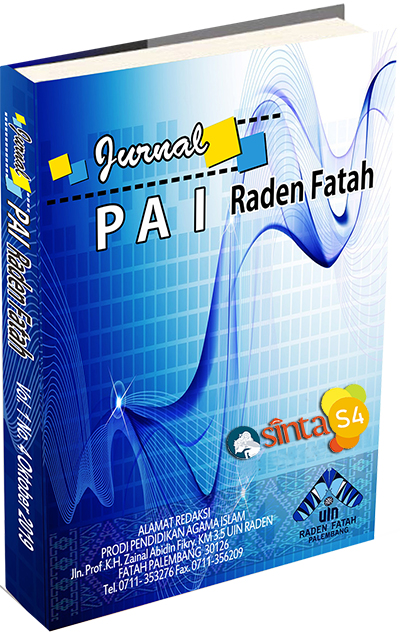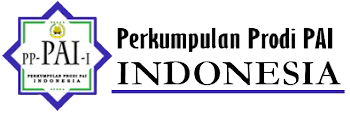Application of Challenge Based Learning Model to Students' Critical Thinking Ability in Fiqh Learning
DOI:
https://doi.org/10.19109/pairf.v7i3.26369Keywords:
Challenge Based Learning, Critical Thinking, FiqhAbstract
This study aimed to investigate the application of the Challenge Based Learning (CBL) model in improving students' critical thinking skills in Fiqh learning. The CBL model utilizes environmental challenges as a learning resource. This quantitative study employed tests, observation, and documentation to collect data. Data analysis was conducted using descriptive statistics and the "t" test. The results showed that the CBL model can be effectively applied in Fiqh learning, particularly in zakat material. Students' critical thinking skills improved significantly, with an average score increase from 63.42 to 75.56. Statistical testing revealed that 65.0% of students' thinking abilities were influenced by the CBL model. Additionally, students were more active in participating in learning through the CBL model. The study suggests that the CBL model can be a valuable approach to enhancing critical thinking skills in Fiqh learning. The findings of this study can be used as a reference for educators and researchers to develop effective learning strategies that promote critical thinking skills in students. Furthermore, the study recommends that educators consider incorporating the CBL model into their teaching practices to improve student learning outcomes.
References
Anggara, Baldi. “Pola Pembinaan Baca Tulis Al-Qur’an Mahasiswa PAI Fakultas FITK UIN Raden Fatah Palembang.” Tadrib: Jurnal Pendidikan Agama Islam 5, no. 2 (2019): 188.
Ardiansyah, Adi Satrio, Ghozy Hanafi Agung, Nabella Dwi Cahya, and Arum Dinasari. “Upaya Mengembangkan Keterampilan 4C Melalui Challenge Based Learning.” In PRISMA, Prosiding Seminar Nasional Matematika, 5:627–37, 2020.
Batubara, Hamdan Husein. Media Pembelajaran Efektif. Semarang: Fatawa Publisher, 2020.
Fadil, Achmad. “Hubungan Gaya Mengajar Guru Fikih Terhadap Prestasi Belajar Siswa.” Jurnal Intelektualita: Keislaman, Sosial Dan Sains 11, no. 2 (2022): 41.
Hawi, Akmal, and Syarnubi Syarnubi. “Remaja Pecandu Narkoba: Studi Tentang Rehabilitasi Integratif Di Panti Rehabilitasi Narkoba Pondok Pesantren Ar-Rahman Palembang.” Tadrib: Jurnal Pendidikan Agama Islam 4, no. 1 (2018).
Komalasari, Kokom. Pendidikan Berpikir Kritis Di Sekolah: Teori Dan Praktik. Jakarta: Kencana, 2018.
Larson, Lotta C, and Timothy N Miller. “21st Century Skills: Prepare Students for the Future.” Kappa Delta Pi Record 47, no. 3 (2011): 121–23. https://doi.org/10.1080/00228958.2011.10516575.
Leijon, Marie, Petri Gudmundsson, Patricia Staaf, and Cecilia Christersson. “Challenge Based Learning in Higher Education– A Systematic Literature Review.” Innovations in Education and Teaching International 59, no. 5 (2022): 609–18. https://doi.org/10.1080/14703297.2021.1892503.
Mardeli, Mardeli. “Problematika Antara Politik Pendidikan Dengan Perubahan Sosial Dan Upaya Solusinya.” Ta’dib: Jurnal Pendidikan Agama Islam 1, no. 2 (2015): 1.
Monicha, Ririn Eka, and others. “Penanaman Nilai-Nilai Akhlak Dalam Pembelajaran Pendidikan Agama Islam Menghadapi Era Milenial Di SMA Negeri 2 Rejang Lebong.” Tadrib: Jurnal Pendidikan Agama Islam 6, no. 2 (2020): 201.
Munawar, Suhaimee Buya, Tofan Agung Eka Prasetya, and Rohana Jani. “Spatio and Temporal Analysis of Indonesia Land Surface Temperature Variation During 2001–2020.” Journal of the Indian Society of Remote Sensing 51, no. 7 (2023): 1671–86. https://doi.org/10.1007/s12524-023-01745-9.
Munawar, Tofan Agung Eka Prasetya, Rhysa McNeil, Rohana Jani, and Suhaimee Buya. “Spatio and Temporal Analysis of Indonesia Land Surface Temperature Variation During 2001–2020.” Journal of the Indian Society of Remote Sensing 51, no. 7 (2023): 1671–86. https://doi.org/10.1007/s12524-023-01745-9.
Nichols, Mark, Karen Cator, and Miguel Torres. “Challenge Based Learner in Practice: How Education Leaders Use CBL to Improve Student Learning.” International Journal of Educational Technology in Higher Education 13, no. 1 (2016): 1–17. https://doi.org/10.1186/s41239-016-0028-8.
Ortiz, M, R Salazar, and E Morales. “Challenge Based Learning to Develop Critical Thinking in Higher Education.” Journal of Technology and Science Education 8, no. 3 (2018): 171–80. https://doi.org/10.3926/jotse.408.
Prasetya, Tofan Agung Eka, Munawar Munawar, Muhammad Rifki Taufik, Sarawuth Chesoh, Apiradee Lim, and Don McNeil. “Land Surface Temperature Assessment in Central Sumatra, Indonesia.” Indonesian Journal of Geography 53, no. 1 (2021): 41–51. https://doi.org/10.22146/ijg.51327.
Rahma, S, S Suardi, and M Muhajir. “The Impact of Media Card Match Circle and the Challenge-Based Learning (CBL) Learning Model on the Learning Outcomes of Pancasila Education in Elementary School Students.” Jurnal Studi Guru Dan Pembelajaran 7, no. 2 (2024): 872–80.
Redaksi Sinar Grafika. Undang-Undang Sistem Pendidikan Nasional (UU RI No. 20 Tahun 2003). Jakarta: Sinar Grafika, 2011.
Sanjaya, Wina. Strategi Pembelajaran Berorientasi Standar Proses Pendidikan. Jakarta: Kencana, 2018.
Santoso, Slamet Imam. Psikologi Pendidikan. Jakarta: Universitas Indonesia Pers, 1987.
Saparuddin. Implementasi Challenge Based Learning Dalam Pembelajaran Sains Biologi. Jakarta: Rineka Cipta, 2023.
Shilviana, Khusna, and Tasman Hamami. “Pengembangan Kegiatan Kokurikuler Dan Ekstrakurikuler.” PALAPA 8, no. 1 (2020): 159–77.
Siswanto, Danang Eko Nuryanto, Muhammad Rezza Ferdiansyah, Agita Devi Prastiwi, Ova Candra Dewi, Ahmad Gamal, and Muhammad Dimyati. “Spatio-Temporal Characteristics of Urban Heat Island of Jakarta Metropolitan.” Remote Sensing Applications: Society and Environment 32 (2023). https://doi.org/10.1016/j.rsase.2023.101011.
Sumaryana, Hendra, Imam Buchori, and Anang Wahyu Sejati. “Green Infrastructure Modelling for UHI Control to Urban Thermal Comfort: A Case Study of Temanggung Urban Area.” IOP Conference Series: Earth and Environmental Science 1030, no. 1 (2022): 12001. https://doi.org/10.1088/1755-1315/1030/1/012001.
Suratman, S Naim, Suhadi Ibnu, and Aman Santoso. “Model Challenge Based Learning Terhadap Kemampuan Berpikir Kreatif Mahasiswa.” Jurnal Pendidikan: Teori, Penelitian, Dan Pengembangan 5, no. 4 (2020): 478–85.
Suwarna. Pengajaran Mikro Pendekatan Praktis Menyiapkan Pendidikan Profesional. Yogyakarta: Tiara Wacana, 2006.
Syafi’i, Ahmad, and others. “Studi Tentang Prestasi Belajar Siswa Dalam Berbagai Aspek Dan Faktor Yang Mempengaruhi.” Jurnal Komunikasi Pendidikan 2, no. 2 (2018): 115–23.
Syarnubi, Syarnubi. “Profesionalisme Guru Pendidikan Agama Islam Dalam Membentuk Religiusitas Siswa Kelas IV Di SDN 2 Pengarayan.” Ta’dib: Jurnal Pendidikan Agama Islam 5, no. 1 (2019): 88.
Utami, Nadiya T, and Bitta Pigawati. “The Correlation Between Urban Development and Land Surface Temperature Change in Palembang City.” Geoplanning: Journal of Geomatics and Planning 9, no. 2 (2022): 249–62.












.png)


1.png)



